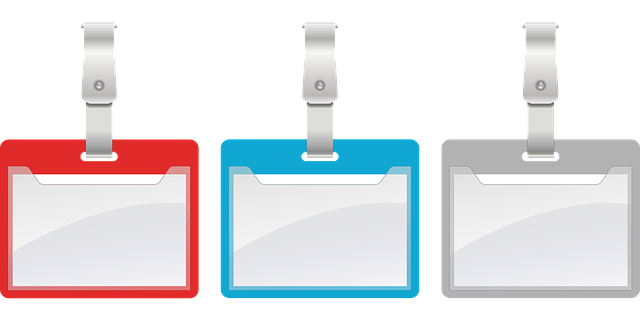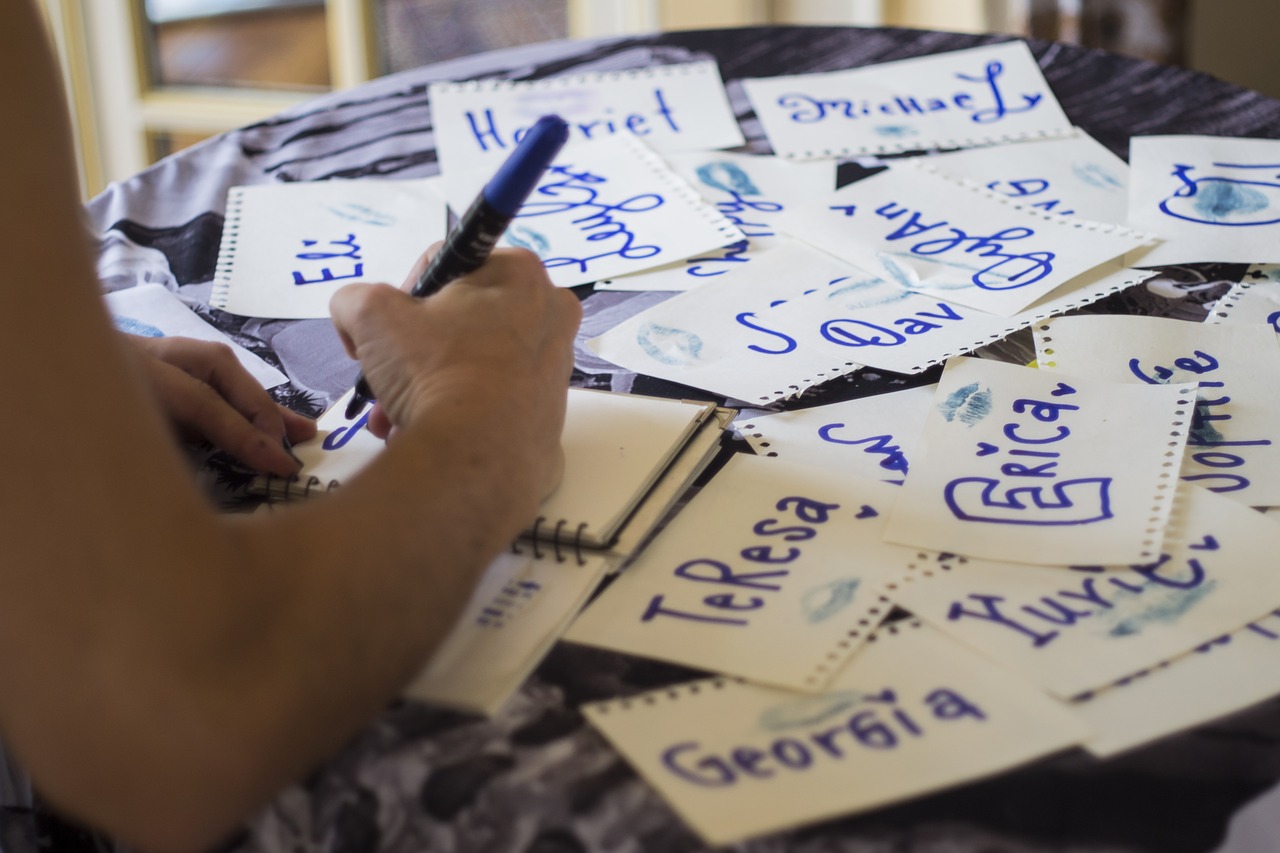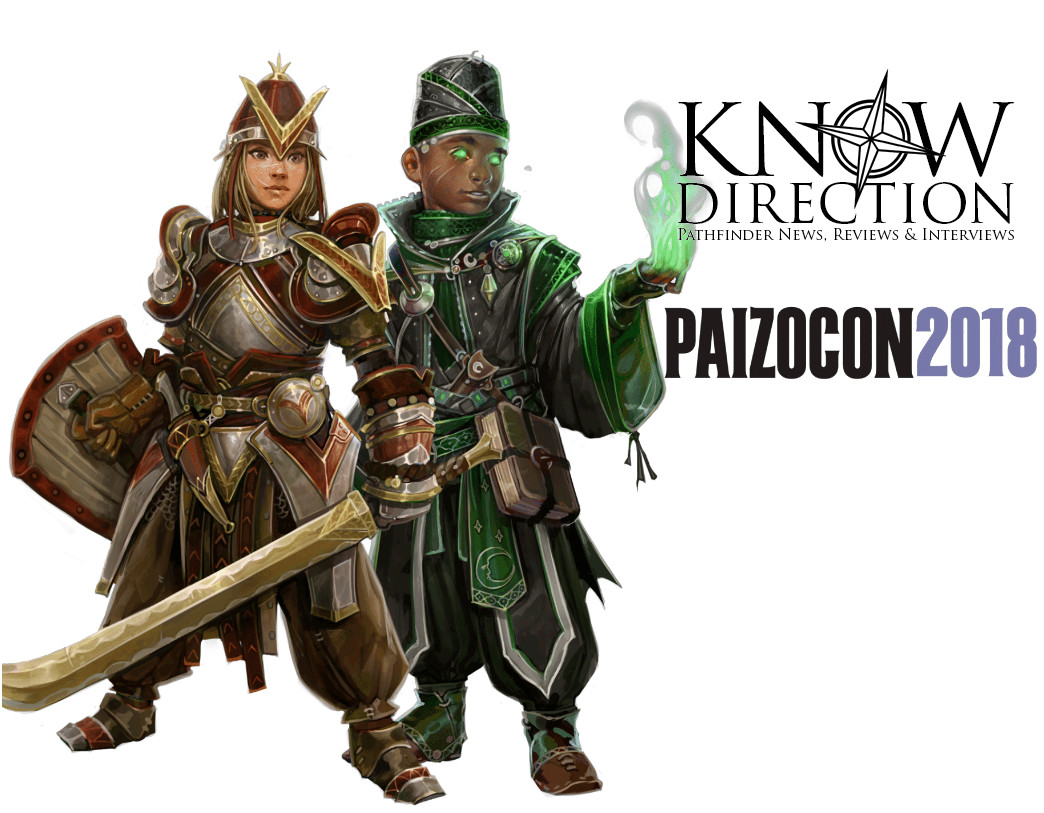Names are one of the most difficult parts of making an adventure. This is something I’ve struggled with throughout my writing and very recently in my own life. Coming up with the exact-perfect name for something is important because it is the single identifier that the GM and players will use to refer to the person, place, or thing that you’re naming. This name needs to embody the identity of the thing; it needs to house its very essence.
You’ve got to name major NPCs, settlements, major geological features, unique magic items, and more. Coming up with names that no one has used before can be one of the hardest things to do. The world has been around for a long time and people keep naming things; with the internet it’s easier than ever to spread information and “use up” all the good names. Let’s look at some strategies we can use when assigning proper names to our characters, locations, and other important game elements.
Theme and Tone
Because the name embodies the anima of the character or location you’re trying to bring to life, make sure to imbue it a name that immediately strikes a reaction from those who hear it. “Fangwood Forest” sounds a bit more wild and dangerous than “Emerald Glade.” If you want to clue the PCs in that the tavern is bawdy, then a name like “The Dragons Codpiece” will help sell the feeling far better than “Adrian’s Lounge.”
Businesses are often named to identify the purpose of the business while giving potential customers an idea of the atmosphere such as “Smoke Ring Café.” Higher class establishments will often obfuscate the business purpose to sound smart or sophisticated like “The Platinum Spoon” or “Ambrosia.”
Settlements are often named for one of three things: the founder, the location, or the purpose. When named after the founder, these places often sound like names themselves. If Darius Lapau owned a silver mine that eventually became a mountain town, they might name it “Lapau Ridge.” For an area named after a location, humans can be very lazy. A settlement named “Stonehill” might seem a bit too simplistic, but remember that Paizo’s first adventure path started in Sandpoint. Finally, the purpose of a location can inform the name as well, such as “Highcross” for a city that controls a bridge over a deep canyon.
Find Phonetic Patterns
In English, there are several common sounds we use. Try some of the more common sounds in various arrangements. Feel free to sit back and combine them in new and interesting ways so find out what sounds like a new name. Often in games a fantasy culture will have similarities, or have inspiration drawn from, a real-world culture. If so, try and look at the common phonetic phrases from the language associated with that culture. When borrowing from cultures that are not your own, you want to make sure to be extra careful to be sensitive to that culture’s traditions and history. If possible, contact a person who is native to that culture and have them look over your adventure material to ensure you’re not misappropriating something or accidently using inappropriate slang.
Tweak Existing Names
 There are hundreds of real-world names that you can use as a template for naming your characters and locations. Let’s take a simple example like “Lana” and change the final vowel to an “u” for “Lanu” (lah-nu). Even less common names such as “Warrick” can be adjusted to sound more fantasy-game-world appropriate. By adjusting the “rr” in the middle to a “lm” we get “Walmick.” Though a simple trick, it works well. Sometimes you adjust a name so many times that it hardly recognizes the original name. That’s ok, too!
There are hundreds of real-world names that you can use as a template for naming your characters and locations. Let’s take a simple example like “Lana” and change the final vowel to an “u” for “Lanu” (lah-nu). Even less common names such as “Warrick” can be adjusted to sound more fantasy-game-world appropriate. By adjusting the “rr” in the middle to a “lm” we get “Walmick.” Though a simple trick, it works well. Sometimes you adjust a name so many times that it hardly recognizes the original name. That’s ok, too!
Pronunciation
Make sure you can pronounce the name you’ve created without great difficulty. Though it’s fun to name dragons Grathatonthakis, the GM who must repeat this name several times in a game session may not appreciate it. If you’re unsure, send the name to some fellow gamers and see if they can pronounce it without difficulty; if not, you may want to re-consider the name.
Say the name out loud and make sure it doesn’t sound too close to a lewd term, body part, or bodily function. Take a moment to imagine you’re an immature child and say the name; if you start to giggle, you may want to reconsider. If you’re unsure, then say the name out of context to a friend with a childish or perverse sense of humor (we’ve all got at least one friend like that). If they start to laugh, change it, but if they are just confused it’s probably safe.
Google It
For the love of the gods, run a few web searches on any name you plan on using. You might find out that it is the term for a lewd act, an important historical figure, or a popular musical artist that you hadn’t known. When possible, try and avoid using a name if it exists in the world in any real capacity.
Let’s take our example from above, “Lanu.” It turns out that Lanu is a music producer from New Zealand and a village in Iran. Neither of these are particularly noteworthy, but if we change it to “Lanoo” and search again… Looks like “Lanoo” is just a Belgian photographer and a Sanskrit word for student or “seeker of truth.” That not only seems like a safer choice, but it has a neat meaning that we can use to inform our choices when writing the personality of this character.
I have personally had developers completely change the names of my characters because they were a minor dictator somewhere in the world and because another sounded like an unusual sexual act that I had previously never heard of. I’m not judging, I just don’t want my character named after that and I was so thankful when the developer caught it before it went to print.
You must develop naming as any other skill, just like cartography or character design. Practice building some locations and characters and give them all unique names; see what you can come up with.





